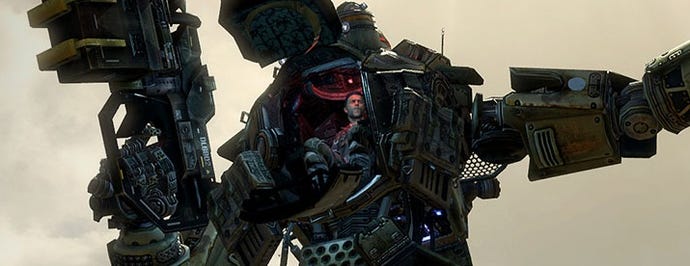Titanfall: EA must search for open relationship after Xbox One exclusive
It may effectively relaunch the Xbox One, but EA has stunted Titanfall's reach, argues Matt Martin.
As soon as EA and Microsoft's honeymoon period is over Titanfall will need a more open relationship. With the contractual obligations out of the way, to use it's own phrasing, EA needs to double-down on Titanfall, not just next-gen development.
Publisher EA expects 10 million next-gen consoles sold by the end of March, no doubt pushed in part by its release of the highly anticipated Titanfall.
The attraction of Respawn's next big thing is unarguable. Marketing is well underway, every scrap of information is pumping video game websites with traffic and consumers are clamouring to put down the pre-orders. Believe the hype.
But Titanfall's console exclusivity to Xbox One could present a problem. In the spotlight EA and Microsoft are best of buddies, sharing marketing spend and preferential promotional space in the run up to the March 11 release.
Reading between the lines of last night's EA financial briefing, however, we see an undercurrent of missed opportunity. EA didn't back the wrong horse when it sided with Microsoft, but it did limit its reach.
"Every gamer in Europe who purchased a next-gen system, purchased a EA title," said new CEO Andrew Wilson. "We are doubling-down on next-gen and bringing innovative games to those platforms to users worldwide."
Xbox One has sold more than 3 million copies and that's a hardcore audience perfect for Titanfall. But PS4 has over 4 million units on the market, too. EA says it has a 30 percent "segment share" on Xbox One. You can bet your ass it would like to have a similar slice of the PS4 pie. Peter Moore even noted last night that Sony has the edge in software attach rates when it comes to next-gen.
Current-gen console game sales have dipped for EA, as they no doubt have for the majority of the big publishers. Microsoft and Sony will continue to support their older machines but the time to move to next-gen is now. The cautious approach is safe and fine and steady and stable. But real growth and success comes from going boots first into something, and the next-gen market is booming. Titanfall can't be late to the party.
The deals are already done and we know EA didn't go exclusive out of the goodness of its own heart. But Titanfall, in its current form, will remain an Xbox One exclusive and of huge benefit to Microsoft. While Sony is slightly ahead of Microsoft in next-gen terms - sales, reviews, consumer goodwill - Titanfall could be big enough to give the Xbox One a second launch. March is a dry period for new releases, and those giant robots could suck the air out of the market for the next six months.
But as soon as EA and Microsoft's honeymoon period is over Titanfall will need a more open relationship. With the contractual obligations out of the way, to use it's own phrasing, EA needs to double-down on Titanfall, not just next-gen development. The real winners in a next-gen console race aren't the hardware manufacturers, but the publishers who spread their biggest games across two machines when the audience is gasping for new IP. Half the discs, half the sales. You have to wonder whether or not there are some tinges of regret in the EA boardroom this morning.


